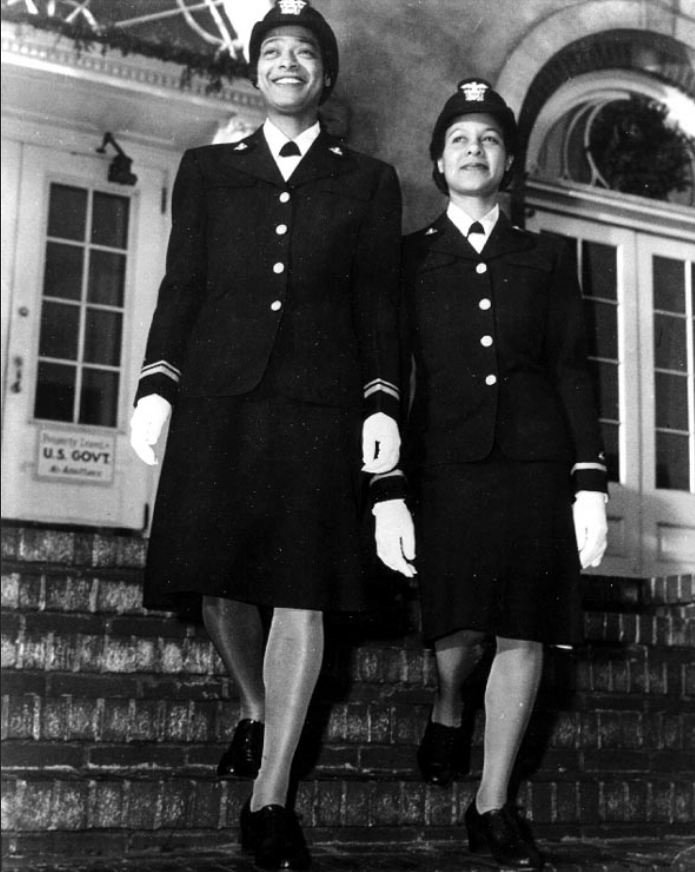Before the Civil Rights and Feminist movements of the 1960s were more than a sparkle in anyone’s eye, Harriet Pickens and Frances Wills joined the US Navy.
Until that moment, Black women were not legally allowed to serve in the Navy. Women, in general, weren’t technically able to enlist until 1942, when the US Navy established the WAVES program – Women Accepted for Volunteer Emergency Service – which allowed temporary assistance during Wolrd War II. In 1944, WAVES began allowing African American women to enlist. Pickens and Wills were the first to join.
The women in service ended up being critical to the war effort – 85,000 of the traffic controllers, cryptologists, hospital corpsmen, draftsmen, lawyers, translators and meteorologists were women. After the war was over, these women stuck around.

Before World War II began, Wills was working as a social worker and Pickens as a public health administrator. They were highly educated and despite joining WAVES late quickly rose to the top of their class. Pickens and Wills were in charge of “recruiting new members, in caring for wounded soldiers, and in participating in physical training,” wrote archivist Tina L. Ligon. Pickens went on to lead physical training sessions while Wills taught naval history and carried out classification tests.
Later, Wills wrote a memoir – Navy Blue and Other Colors – detailing her experiences leading up to and during her service in the navy. As you can imagine, it wasn’t easy.
Black women from the ‘greatest generation’ made up only about 1% of the women who served, but their courage served as an inspiration to the activists leading up to and during the Civil Rights movement.
Pickens and Wills remind us that while following your heart requires guts, it can both be both empowering and powerful.





